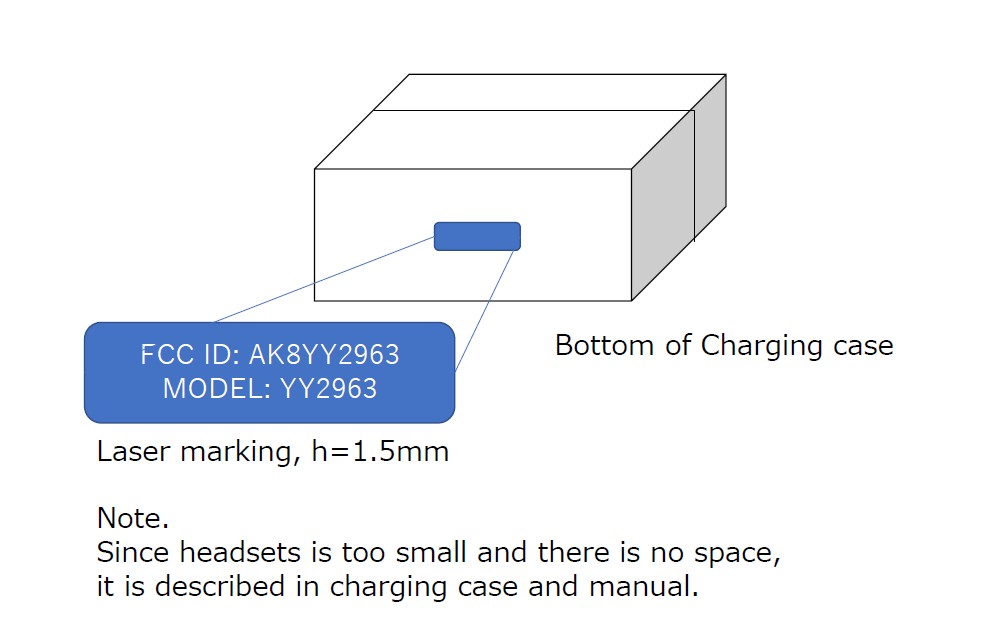The Sony WF-1000XM5 just passed thru the FCC
For those finally waiting for the Sony WF-1000XM5 earbuds, well you will need to wait a bit longer, but they have finally appeared on the FCC.
Sony has been real careful with the filing as not to reveal too much, but the filing revels that we are looking at a set of wireless noise canceling earbuds, with a Bluetooth version 5.3. I would imagine LE Audio will ship with this model.
Just like previously with the WF-1000XM4, the wireless antenna is a monopole design and LDS printed. The antenna has a gain of -3dBi, which is less than the -1dBi in the WF-1000XM4. What does this mean? Well, from my understanding using this video, the lower antenna gain would mean less distance for the signal, but the area for the signal should be larger. If anyone wishes to explain this better in the comments, please so.
Thanks to the filing, we know the WF-1000XM5 will continue the touch panel control on the earbuds. If my understanding is correct, Goertek Inc, is the manufacturer of this antenna and touch panel piece.
I will point out the photo of the case is just a temporary photo for the FCC filing. This is to hide the real design.
The battery capacity is unknown, but Sony is keeping the 3.85V voltage. That is all from the FCC filing on the technical side, hopefully more is revealed in other filings and possibly leaks.
For those in Canada, the headsets was also certified there today.
Reveal date
The short term confidentiality end date is August 22 2023, but this does not mean we will have to wait that long to see them. The WH-CH720N had a short term end date of March 23rd 2023 originally. but the headset was revealed last day, and the short term date moved to February 16th.
So when will we see the new WF-1000XM5? Well the WH-1000XM5 appeared on the FCC in early February 2022 and had short term confidentiality end date of August 8th 2023. But Sony announced the WH-1000XM5 on May 12, 2023, much earlier than their short term confidentiality end date would have suggested.
So this means we could be looking at a reveal as early as May 2023, but also as late as August 2023. Sony could release the new WF-1000XM5 in May, and position the outgoing WF-1000XM4 as a cheaper alternative.
I just hope for Sony's sake that there will be no battery drain issues with the new model in the future. Otherwise, they can kiss their market in high end earbuds goodbye.






hoping for a smaller and more comfortable size
ReplyDeleteGreat news. Can't wait for them.
ReplyDeleteI guess the summer 2023 release date also rules out the possibility of an LC3 update for the WF-1000XM4 - which was unlikely after it was only announced for the Linkbuds S anyway .
E_D___B_A_N_G_E_R
I'm now even wondering if we will see the multipoint update before winter 2023 ends.
DeleteI wouldn't bet on it!
DeleteE_D___B_A_N_G_E_R
Multipoint for xm4 is now available since today, 27 Feb 2023, with version 2.0.0
DeleteLower gain can be offset with higher transmit power, so it doesn't really mean anything if one of the two parts is unknown.
ReplyDeleteanyway to see if that is the case? say with SAR numbers?
DeleteI hope it’s getting lower
DeleteGain is a measure of antenna directivity.
ReplyDeleteAn isotropic antenna has a gain of 0dBi and has no directivity. The signal strength is equally radiated from the source. Think of it as a sphere.
In this case, a negative gain seems kind of wrong, since you can't get any less directed than an isotropic antenna. The negative sign probably came from the path loss equation.
In any case, 3dBi indicates a more directed radio. This is a good thing, since your signal strength is more focused in one direction - implying less transmit power needed to achieve the same received signal strength. A directed antenna is a good use case here, since the earbuds are communicating with your phone, which you usually hold below your head in your hands or pockets..
However, if somehow the negative sign is not an error, then this would imply the XM5 has worse directivity than an isotropic antenna, which doesn't make sense from an engineering standpoint. This could happen if your directed antenna is pointed in the wrong direction away from the intended direction.